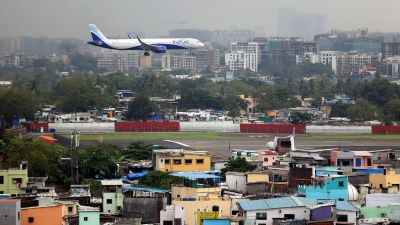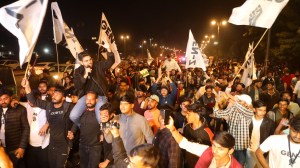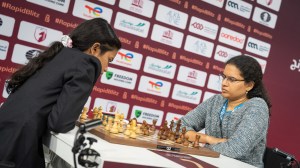Diplomacy won146;t hurt
WHEN it comes to the feelings of neighbouring countries, our government is inclined to be insensitive. It behaves like any other big power w...

WHEN it comes to the feelings of neighbouring countries, our government is inclined to be insensitive. It behaves like any other big power which believes that equality in diplomatic jargon is all right as far as it goes 8212; but when the chips are down, small countries must know their place. New Delhi was at its crudest when it conveyed to Dhaka India8217;s inability to attend the SAARC meeting. Natwar Singh, who presides over the ministry of foreign affairs, is the last person who should be asked to handle jobs demanding finesse. He is too arrogant and too hawkish to care about tact and nuance. When the government decided to abstain from the meeting, he reportedly entrusted his foreign secretary with the task of communicating 8220;no8221; to India8217;s high commissioner at Dhaka. But before the high commissioner could convey the message to the Bangladesh government, the news was on television channels in Dhaka. Even without ensuring that India8217;s decision reached the right quarters, New Delhi disseminated the information to the media.
Naturally, Bangladesh 8212; the host of the SAARC summit 8212; felt cut up. A country which is always on the edge when it comes to dealing with India felt humiliated. I can8217;t understand why Natwar Singh could not pick up the telephone and inform the Bangladesh foreign minister himself? Would it have ruffled diplomatic feathers or violated some protocol rules? The royal coup in Nepal was a good enough reason for India to stay away. But the way events unfolded, the picture that emerged was different. Look at it from Bangladesh8217;s point of view. The meeting was cancelled twice when Dhaka was all set to attract the spotlight. Bangladesh, after all, does not get too many opportunities to play a prominent role in the region. The SAARC gathering gave the country a sense of importance. Anyone could have figured out that cancellation would disappoint the people of that country. And since India8217;s inability to participate led to the calling off of the meeting, anger was bound to be directed at New Delhi.
India8217;s fault lay in confusing SAARC objectives with its own reactions. It made sense when it was said that Prime Minister Manmohan Singh could not be seen shaking hands with the Nepalese king, just days after he had smothered democracy. But why did New Delhi dwell on developments in Bangladesh while explaining its absence? SAARC is a forum of governments, however wanting. India is only a participant.
New Delhi could have glossed over the developments in Bangladesh for the time being. No doubt Dhaka presented security risks in the wake of disturbances due to the murder of Awami League Secretary General Shamsul Kibria. It is equally true that the horrifying incident came at a time when India was feeling peeved over the murderous attack on Awami League President Sheikh Hasina. Yet, New Delhi had many other avenues to communicate its concern. In fact, it issued a statement when Kibria8217;s murder took place. Certainly, Manmohan Singh8217;s security could not have been taken lightly. But surely Dhaka could have been asked to put in place more stringent security checks. We could have flown in our own commandos, to which, I am sure, the Bangladesh government could not have objected, beleaguered as it was at that time.
Maybe we are barking up the wrong tree. Our main problem is that we have not been able to establish a working relationship with Khaleda Zia8217;s government which, to say the least, has not been friendly. The comparison becomes obvious when her predecessor, Sheikh Hasina, was equally irritating, but not unfriendly. The fact is that anti-liberation elements, who are unaccommodating vis-a-vis New Delhi, have crowded out pro-liberation elements, who are friendly and secular. The Bangladesh Nationalist Party of Khaleda Zia has been conniving in the activities of anti-liberation groups. But this is not something new. New Delhi has lived with such a situation before. Why should it have let its frustration lead to the extreme step of withdrawing from the SAARC meeting? The summit would have given the countries in the region an opportunity to discuss the situation in Bangladesh on the sidelines of the meeting.
I believe the reason why Bangladesh has been drifting away from India lies in the message Kibria sent to his Indian friends two days before his assassination. He said that India had abandoned its liberal and secular friends in Bangladesh to face fanatic and fundamentalist forces. This is true to some extent because we have been paying very little attention to Bangladesh since the return of Khaleda Zia. It may sound harsh but there is no denying that there is hardly any mention of Bangladesh in India and its media in positive terms. The issue of illegal immigrants is raised regularly in the press, but there is not a word about the circumstances that force people to leave their land and homes. The BJP-led government killed the work permit scheme for Bangladeshis. The Congress, even after being in power for nine months, has not thought of reviving it. Neither does the Congress-led government at the Centre answer the question raised by Kibria.
People-to-people contact may be the answer. It is, however, strange that there is very little enthusiasm among Bengalis on both sides for the kind of interaction seen among the people of east and west Punjab. This, in fact, should be more visible in West Bengal and Bangladesh because Bengalis had a century ago successfully resisted the division of Bengal. Supercilious as the Bengalis are 8212; they do not mix with those they consider less important than themselves 8212; Dhaka would not lose in stature if it established contacts with Kolkata, even though it is not India8217;s capital. The scope for cultural engagement is immense. But the equation between Dhaka and Kolkata is weak. Both have to forget the past. Even if they do not do so now, they are bound to one day. At least New Delhi should be sensible enough not to spoil things till that time arrives.
- 01
- 02
- 03
- 04
- 05































